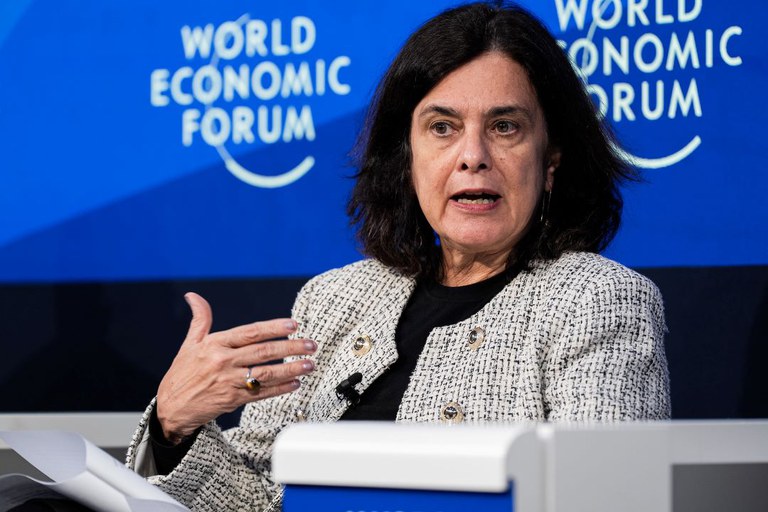Notícias
LOOKING TO THE FUTURE
Brazil's minister of Health discusses the lessons learned from the pandemic, at the World Economic Forum

- Credit: World Economic Forum/Jakob Polacsek
What efforts are needed to prepare health systems for the multiple challenges of the future? The answers to this question were discussed in the panel "Preparing for 'Disease X'", held on Wednesday (17) as part of the World Economic Forum program in Davos, Switzerland. The event was attended by the Minister of Health, Nísia Trindade.
According to the minister, achieving resilient health systems depends on the "timing of the political response at both national and global level". In the specific case of Brazil, according to Trindade, what we saw in the administration that preceded was a very negative response to the capacity of the Brazilian Unified Health System (Sistema Único de Saúde - SUS).
During the panel, the minister highlighted Brazil's experience in dealing with the COVID-19 pandemic. "We have learned from the pandemic, but we need some transformative forces to think about an effective response capacity to diseases with possible pandemic potential," she said.
What to do from now on? Nísia suggested ways forward: "It is essential to invest in technology, innovation and reducing inequality between countries, especially with regard to the development and production of medicines, vaccines and diagnostic tests," she said. The minister stressed that Brazil, as leader of the Group of 20 (G20), is proposing an alliance to encourage local and regional production of health supplies.
"At the same time, it is very important to have an integrated vision of surveillance of possible new outbreaks, new epidemics or pandemic risks. This surveillance must be seen in a comprehensive way, starting with primary health care and strengthening the country's epidemiological intelligence centers," she said.
During the discussion, the minister raised the need to strengthen digital health in countries. "Recently, a report by the Brazilian Academy of Sciences (Academia Brasileira de Ciências - ABC) was published in Brazil, evaluating exactly the role of artificial intelligence in health systems," she recalled.
"There are positive aspects ranging from diagnosis to treatment and data integration for epidemiological scenario analysis. But at the same time, there is concern about both education and the improvement of these technologies in developing countries," she said.
INTERNATIONAL AGENDA - On Monday (15), the first day of the forum in Switzerland, the minister took part in a bilateral meeting with the WHO's Special Envoy for Climate Change and Health, Vanessa Kerry. Nísia discussed scientific evidence of the impact of climate change on the health of the population, including phenomena such as more intense heatwaves, extreme events and changes in the patterns of vector-borne diseases.
On Tuesday (16), Nísia took part in panels on the impact of climate change on the health of populations - especially the most vulnerable - and the role of health for sustainable transformation.
THE WORLD ECONOMIC FORUM - The World Economic Forum is an annual meeting held in Davos. The meeting aims to bring authorities together and promote debates on development and public-private cooperation. This year's edition runs until Friday (19).